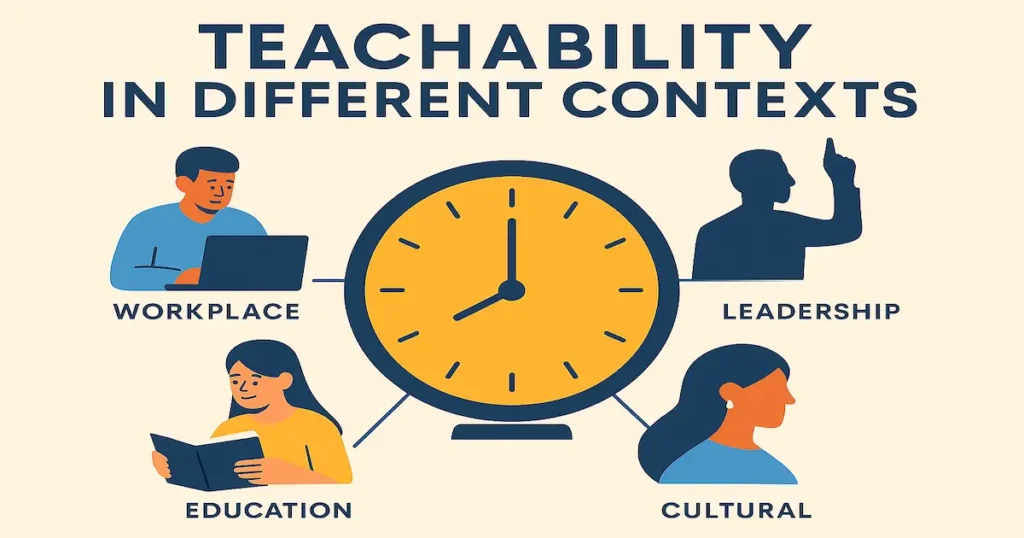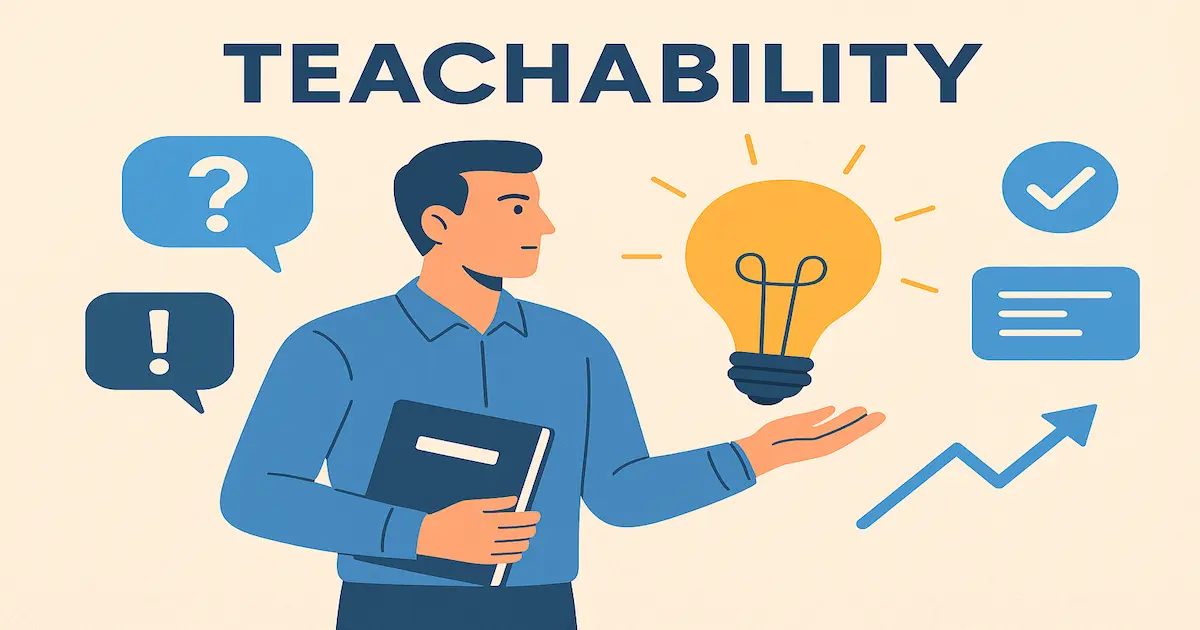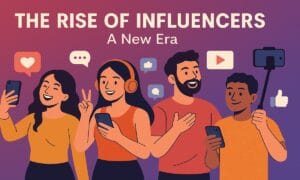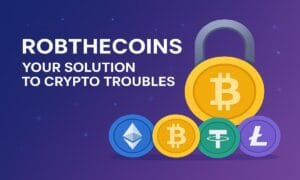Teachability is the quiet force behind growth and success. It is not flashy like raw talent or obvious like high intelligence. Instead, it works in the background, shaping how people adapt, learn, and respond to challenges.
A teachable person sees feedback as an ally rather than an enemy. They treat mistakes not as failures but as stepping stones.
History offers endless proof of this. Think about leaders who changed entire industries. They were not always the most brilliant or the most experienced. What set them apart was their ability to learn, unlearn, and relearn.
Teachability allowed them to spot opportunities others missed. It helped them recover when things went wrong.
Satya Nadella, the CEO of Microsoft, captured this spirit in one short sentence:
“The learn-it-all will always do better than the know-it-all.”
That phrase reflects why teachability has become a decisive skill in education, in the workplace, and in personal development. The truth is simple: knowledge without openness grows stale, but teachability keeps you fresh.
What is Teachability?
At its core, teachability is openness to instruction and correction. It means being able to say,
“I may not know this yet, but I’m willing to learn.”
Teachable people don’t pretend they have all the answers. They approach situations with humility. They accept that someone else’s perspective may improve their own.
This is what makes teachability different from other traits. Intelligence shows how fast you can process information. Curiosity drives you to explore new ideas. But teachability connects them both.
It determines whether intelligence turns into wisdom and whether curiosity leads to real growth. A person with modest intelligence but strong teachability can surpass a genius who refuses to listen or adapt.
The power of this trait appears in daily life. In schools, teachers notice that teachable students learn faster because they apply corrections. In workplaces, teachable employees adapt to new systems with less stress.
In friendships and relationships, teachability allows people to listen and grow together rather than argue endlessly.
Teachability vs. Intelligence vs. Curiosity
| Trait | What It Measures | Example in Action |
|---|---|---|
| Intelligence | Mental ability | Solving a math equation quickly |
| Curiosity | Desire to explore | Reading about different topics |
| Teachability | Willingness to learn from others | Accepting feedback at work |
As Zen teacher Shunryu Suzuki wrote:
“In the beginner’s mind there are many possibilities, but in the expert’s there are few.”
Teachability keeps the mind in that beginner’s state—open, flexible, and ready to absorb new lessons. Without it, even the smartest person can become rigid and outdated.
Why is Teachability Important?
Teachability is not just a helpful trait—it is a foundation for growth in every part of life. People who stay open to learning move forward. Those who resist eventually fall behind. This truth applies in schools, in the workplace, in leadership, and in personal relationships.
In education, teachers often say they prefer a teachable student with average ability over a brilliant one who refuses correction. Why? Because teachable students improve with every mistake.
A child who accepts guidance in math keeps getting stronger, while a stubborn child stays stuck. Research supports this idea. Studies show that students who adopt a “growth mindset” and embrace feedback consistently achieve higher results over time.
The workplace offers even clearer proof. Companies evolve quickly, with new technologies and strategies appearing all the time. Workers who adapt to change and learn new tools rise to the top.
Read More: 50 Powerful Topics for a Mental Health Speech 2025
For example, when businesses shifted toward remote work, the most teachable employees mastered video conferencing, online collaboration, and digital workflows. Those unwilling to learn struggled. The difference came down to teachability, not past experience.
Leaders also rely heavily on this trait. A manager who listens to a team builds trust and earns loyalty. A leader who adapts to new market realities steers an organization forward.
In contrast, leaders who stop learning often make poor decisions because they rely only on outdated knowledge. History shows that some of the greatest leaders were not the smartest in the room but the most teachable, willing to listen, and ready to grow.
Teachability matters beyond school and work. It shapes personal growth. People who are open to feedback build stronger relationships.
They handle conflict with humility and flexibility. They improve communication, adapt to challenges, and grow closer to others. Life itself becomes easier when you are teachable because you learn from every situation instead of fighting against it.
Why Teachability Matters in Different Fields
| Field | How Teachability Shows | Result |
|---|---|---|
| Education | Student accepts correction | Faster and deeper learning |
| Workplace | Worker adapts to new tools | Higher value and career growth |
| Leadership | Leader listens to feedback | Stronger trust and better results |
| Personal Growth | Person learns from mistakes | Continuous self-improvement |
A simple yet powerful saying highlights this truth:
“Teachability is not weakness; it is the doorway to wisdom.”
Those who stay open to learning discover strength in humility. They gain new skills, deeper understanding, and a clearer path forward.
Traits of a Teachable Person
Teachability shows itself in very clear ways. When you look closely at people who keep growing, certain traits always appear.
They share a mindset that sets them apart from those who resist learning. These traits can be seen in classrooms, offices, families, and communities.
The first and most important trait is humility. A teachable person admits they don’t know everything. They are willing to accept correction without letting pride get in the way.
For example, a student who admits confusion in class often learns faster because the teacher can help them directly.
In workplaces, humble employees thrive because they don’t waste energy pretending to be perfect. Instead, they open the door to growth by saying, “I don’t know this yet, but I can learn.”
Another strong trait is curiosity. Teachable people naturally ask questions. They want to know why things work, not just how.
Also Visit: How to Scale Crypto Exchange Business Successfully 2025
Unlike those who act like they already have all the answers, curious people explore new ideas and perspectives. Curiosity makes them flexible learners. When curiosity is paired with humility, it becomes a powerful force for growth.
Feedback acceptance is another vital sign of teachability. Everyone receives feedback at some point, but not everyone uses it. A teachable person listens carefully, reflects on what they hear, and makes changes.
They don’t get defensive. They see advice as a tool for improvement. This trait makes them stand out in schools, workplaces, and even personal relationships.
The final key trait is adaptability. Change is constant in life, and adaptability allows a person to adjust without panic.
Teachable people are quick to shift when a new method or tool appears. Instead of resisting change, they embrace it. This makes them resilient and reliable in every environment.
Traits of a Teachable vs. Non-Teachable Person
| Characteristic | Teachable Person | Non-Teachable Person |
|---|---|---|
| Humility | Admits mistakes | Refuses to be wrong |
| Curiosity | Asks questions | Acts like they know it all |
| Feedback | Accepts and applies advice | Rejects criticism |
| Adaptability | Adjusts to change quickly | Resists new methods |
As the writer Thomas Merton once said:
“Pride makes us artificial; humility makes us real.”
This line perfectly captures why humility sits at the heart of teachability. Without it, curiosity and adaptability cannot reach their full potential. With it, every experience becomes an opportunity to grow.
How to Develop Teachability
Teachability is not something you are either born with or without. It is a skill that can grow stronger over time. Like a muscle, it develops with practice, reflection, and steady effort. Anyone can become more teachable if they build the right habits and mindset.
One of the most effective ways to grow teachability is through self-reflection. At the end of each day, asking simple questions like “What did I do well?” and “What could I do better?” builds awareness.
Writing down lessons in a journal strengthens this process. Over time, you begin to see patterns in your behavior and recognize where you resist learning. This awareness becomes the foundation for change.
Another powerful method is seeking mentorship. A mentor provides guidance and perspective that you cannot always see on your own. By listening and applying their advice, you train yourself to value feedback.
In many workplaces, mentorship programs help new employees adapt faster. In personal life, mentors can be friends, family, or even books and courses that shape your growth.
Adopting a growth mindset is also key. Psychologist Carol Dweck explained that people with a growth mindset believe skills can be developed through effort.
They don’t see failure as a dead end but as part of the learning process. Someone with this mindset responds to challenges with curiosity instead of fear. This attitude transforms obstacles into opportunities.
Active listening is another essential practice. Many people hear but do not really listen. A teachable person listens with focus, asks clarifying questions, and takes notes if needed. Later, they act on what they heard.
This habit strengthens relationships and builds respect because others see that you value their input.
Case studies show how powerful these steps can be. A company once introduced a new digital system, and employees struggled. Some resisted, saying the old way was better. Others leaned into the training, asked questions, and applied feedback.
Within months, the teachable group mastered the system and became more productive than before. The difference came down to willingness to learn, not intelligence.
Becoming more teachable does not happen overnight. It takes daily effort—reflecting, listening, adjusting, and repeating. But each small step compounds. Over time, these habits transform not just how you learn, but also how far you go in life.
How to Develop Teachability
Teachability is not something you are either born with or without. It is a skill that can grow stronger over time. Like a muscle, it develops with practice, reflection, and steady effort. Anyone can become more teachable if they build the right habits and mindset.
One of the most effective ways to grow teachability is through self-reflection. At the end of each day, asking simple questions like “What did I do well?” and “What could I do better?” builds awareness.
Writing down lessons in a journal strengthens this process. Over time, you begin to see patterns in your behavior and recognize where you resist learning. This awareness becomes the foundation for change.
Another powerful method is seeking mentorship. A mentor provides guidance and perspective that you cannot always see on your own. By listening and applying their advice, you train yourself to value feedback.
In many workplaces, mentorship programs help new employees adapt faster. In personal life, mentors can be friends, family, or even books and courses that shape your growth.
Adopting a growth mindset is also key. Psychologist Carol Dweck explained that people with a growth mindset believe skills can be developed through effort. They don’t see failure as a dead end but as part of the learning process. Someone with this mindset responds to challenges with curiosity instead of fear. This attitude transforms obstacles into opportunities.
Active listening is another essential practice. Many people hear but do not really listen. A teachable person listens with focus, asks clarifying questions, and takes notes if needed.
Later, they act on what they heard. This habit strengthens relationships and builds respect because others see that you value their input.
Case studies show how powerful these steps can be. A company once introduced a new digital system, and employees struggled. Some resisted, saying the old way was better. Others leaned into the training, asked questions, and applied feedback.
Within months, the teachable group mastered the system and became more productive than before. The difference came down to willingness to learn, not intelligence.
Becoming more teachable does not happen overnight. It takes daily effort—reflecting, listening, adjusting, and repeating. But each small step compounds. Over time, these habits transform not just how you learn, but also how far you go in life.
Measuring Teachability Effectively
Teachability may seem like a soft skill, but it can be measured in clear ways. Experts describe this through the Teachability Quotient (TQ).
Just as IQ measures raw intelligence and EQ measures emotional skills, TQ measures a person’s openness to growth. It reflects how willing you are to accept correction, apply feedback, and adapt to change.
A high TQ suggests someone learns quickly when faced with challenges. They adjust behavior after mistakes, ask for help, and stay open to new ideas. A low TQ, on the other hand, shows resistance.
People with low teachability often repeat the same mistakes, dismiss advice, and struggle with change. This makes it harder for them to progress in school, work, or personal life.
Organizations increasingly recognize this. Many employers now test adaptability and feedback response during interviews. Instead of asking only about past achievements, they ask how you handled failure or learned a new skill.
This gives them a glimpse of your TQ. For example, if a candidate can clearly describe a mistake, the feedback they received, and how they grew from it, that signals strong teachability.
Individuals can also measure themselves informally. Asking simple questions can reveal your TQ:
- Do I accept correction without getting defensive?
- Do I change my approach after receiving advice?
- Do I value learning more than protecting my pride?
If the honest answer to these questions is “yes,” then your teachability is likely strong. If the answer is “no,” then it highlights areas for growth.
Researchers note that reflection exercises, like journaling and feedback tracking, can improve TQ over time.
For example, writing down moments when you received correction and noting how you responded creates accountability. It shifts the focus from blame to growth.
John Maxwell put it best when he said:
“The greatest enemy of learning is knowing.”
This quote captures the danger of thinking you already know enough. The moment learning stops, growth freezes. Measuring and improving teachability ensures that you keep moving forward.
Teachability in Different Context

Teachability shows up differently depending on the setting, but the essence remains the same: openness to learning and willingness to change.
Whether in schools, workplaces, leadership roles, or cultural traditions, teachability determines how well a person grows in that environment.
In classrooms, teachability is often the strongest predictor of long-term success. Teachers notice that the students who listen, ask questions, and apply feedback improve steadily. Even if they don’t start as the top of the class, their progress compounds over time.
A teachable student embraces mistakes as lessons, and this habit carries into higher education and beyond. In contrast, brilliant but stubborn students often struggle because they refuse correction.
In workplaces, teachability has become one of the most valuable traits. Modern industries change quickly, with new technologies and methods arriving constantly. Employees who are teachable adapt without fear.
They master new systems, learn new skills, and stay relevant even as jobs evolve. For example, when businesses shifted toward digital tools, teachable employees were the first to adjust, giving them a career advantage.
Leadership depends even more on this quality. Leaders who are teachable build trust with their teams. They listen to employees, admit when they don’t have all the answers, and seek new perspectives. This makes them better decision-makers.
A leader who stops learning, however, risks becoming disconnected and ineffective. History is full of examples of leaders who fell because they relied only on old knowledge. On the other hand, those who kept learning thrived.
Cultural and religious traditions also emphasize teachability. Many faith texts highlight humility as the doorway to wisdom. Philosophers for centuries have praised the ability to stay open-minded.
In both personal and cultural life, teachability is linked with growth, harmony, and wisdom. It is a timeless trait that cuts across disciplines, eras, and communities.
Barriers to Teachability
If teachability is so valuable, why do so many people struggle with it? The truth is that several barriers stand in the way. These barriers are often rooted in mindset and emotions rather than ability. Understanding them is the first step to overcoming them.
The biggest obstacle is pride. When people believe they already know enough, they resist correction. Feedback feels like criticism rather than support.
This attitude shuts the door to growth. Pride blinds people to their own mistakes, making it impossible to improve. Many talented individuals fall short because pride stops them from being teachable.
Another common barrier is fear of change. Learning often means stepping into the unknown. For some, this feels uncomfortable or even threatening. Instead of seeing change as a chance to grow, they cling to old habits.
This fear makes them rigid, even when change is necessary. Over time, the unwillingness to adapt leads to missed opportunities and frustration.
Stubbornness also limits teachability. Stubborn people may hear advice but refuse to consider it. They are locked into one way of thinking.
This can cause repeated mistakes, damaged relationships, and lost chances to succeed. Unlike humility, which invites growth, stubbornness builds walls that keep learning out.
Finally, there is confusion between curiosity and teachability. Curiosity drives exploration but does not guarantee change. A person can be curious about new ideas yet ignore correction.
Teachability requires action—it means applying what you learn. For example, someone may read dozens of books on communication but still refuse to adjust how they speak with others. Without teachability, curiosity becomes empty knowledge.
Breaking these barriers requires self-awareness. Humility replaces pride. Courage overcomes fear. Openness breaks stubbornness.
And applying knowledge bridges the gap between curiosity and teachability. Once these barriers fall, growth becomes natural and continuous.
Conclusion
The future of teachability will reward those who remain teachable. Every industry, every school, and every community is changing at a pace faster than ever before. Technology advances daily. Careers transform in ways no one could predict a decade ago.
In such a shifting landscape, talent and past achievements are not enough. The true advantage belongs to people who continue learning.
Teachability is no longer a soft skill; it is a survival skill. Workers who are teachable adapt to new systems with confidence. Leaders who are teachable stay relevant because they keep listening and evolving.
Students who are teachable excel because they embrace correction and improve step by step. In contrast, those who resist learning fall behind, no matter how gifted they may be.
This truth extends beyond school and work. Life itself rewards the teachable. Relationships grow stronger when people listen, adapt, and accept feedback.
Communities thrive when members are open to fresh ideas. Even personal happiness is tied to teachability, because openness allows people to grow into better versions of themselves.
A powerful reminder comes from a famous saying often linked to Albert Einstein:
“Once you stop learning, you start dying.”
These words capture the essence of teachability. Growth ends the moment a person closes themselves to learning. Staying teachable keeps life vibrant, purposeful, and meaningful.
The future belongs not to the ones who know it all, but to the ones who are humble enough to keep learning. To remain teachable is to remain alive, relevant, and ready for every challenge tomorrow may bring.
Frequently Asked Questions about Teachability
Can teachability be learned at any age?
Yes, teachability can be learned at any stage of life. Children show it when they listen in class, adults build it through work and relationships, and older people develop it by staying open to new ideas. With humility and practice, growth never has an age limit.
How is teachability tested in job interviews?
Interviewers often test teachability by asking about mistakes or challenges. They want to see if you accepted feedback, adjusted your approach, and improved. They may also ask about new skills you recently learned. Honest examples prove you are adaptable and open.
What is the difference between curiosity and teachability?
Curiosity is the desire to know more. Teachability is the willingness to change based on what you learn. A curious person may explore but ignore correction. A teachable person listens, applies advice, and grows. When combined, curiosity and teachability create powerful learning.
Why is teachability important for leaders?
Leaders who are teachable gain trust and respect. They listen to their teams, welcome feedback, and admit when they need to grow. This creates stronger connections and better decisions. Leaders who refuse to learn often lose touch and struggle to guide others.
Can teachability improve academic success?
Yes, teachability directly supports academic growth. Students who accept correction, adjust their approach, and try again usually outperform those who only rely on natural intelligence. Teachers often prefer a teachable learner with steady progress over a resistant but talented one.
What are signs of low teachability?
Low teachability shows up in many ways: ignoring feedback, blaming others for mistakes, resisting new ideas, and refusing to admit fault. People with low teachability often repeat the same errors and find it difficult to grow in personal or professional life.
How can I become more teachable?
Start by practicing humility and admitting when you don’t know something. Listen more than you speak. Take notes on advice and put it into action. Reflect on mistakes daily and treat them as lessons. Seeking mentors or coaches can also strengthen your teachability.












